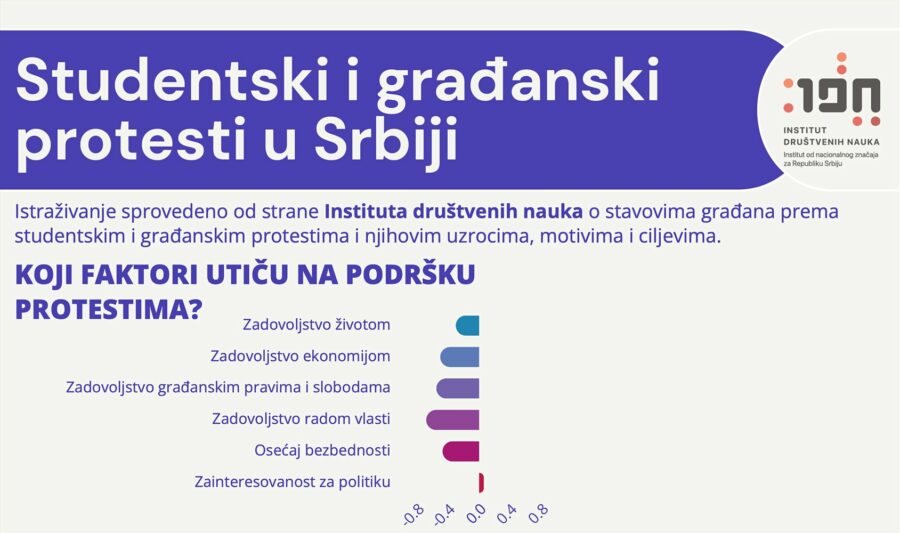The Institute of Social Sciences conducted a study on student and civic protests in Serbia. The research was carried out from March 14th to March 24th. The target group consisted of adult citizens of the Republic of Serbia, and a total of 11110 survey responses were recorded. The data collection method was computer-assisted web interviewing (CAWI).
The research results show that life satisfaction, the economy, respect for civil rights and freedoms, government performance, and a sense of security are factors influencing support for student and civic protests. Respondents who expressed a lower level of satisfaction in these areas are also those who tend to support the protests more. Interest in politics did not prove to be a decisive factor influencing support for the protests.
Respondents who support the protests mostly express their support through physical participation in protests, sharing information on social media, and signing petitions or letters of support.
The reasons for the protests are perceived differently among supporters and opponents of the protests. Respondents who support the protests believe that the key reasons for initiating protests are distrust in institutions, the desire to establish accountability for lost lives, and dissatisfaction with the general state of society. On the other hand, respondents who do not support the protests believe that the key reasons for initiating protests are the influence of foreign factors aiming to destabilize Serbia, a politically motivated attempt to overthrow the government, and the actions of domestic actors seeking to destabilize Serbia.
When asked about the biggest problems in Serbia, respondents who support the protests identified corruption, distrust in institutions, and crime. On the other hand, respondents who do not support the protests identified the protests themselves, the state of the education system, and corruption as the biggest problems in Serbia.
A total of 70.5% of respondents do not see any existing political party—whether in power or in opposition—as capable of implementing their vision for Serbia’s desirable social and political development.
As a solution to the current social situation, protest supporters advocate for the formation of an expert government that would include representatives from universities, faculties, and scientific institutes. Opponents of the protests see the solution in ending blockades and concluding the protests.
A total of 84% of protest supporters express support for a general strike aimed at fulfilling student demands.

